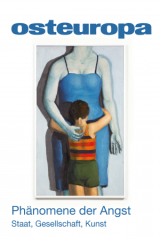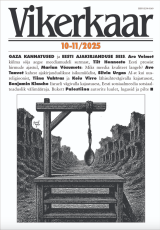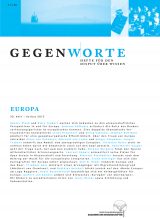Eurozine Editorial
Unsigned articles (News Items, Editorials, Introductions etc) are written by the Eurozine editors. See the about us section for more information.
Articles

Unsettling reading
Eurozine editorial
Every so often an article gets under your skin. Reading it, one is both exhilarated and unsettled. It is something that cannot be ‘unread’. Eurozine’s latest editorial introduces the highlights of the past two weeks.
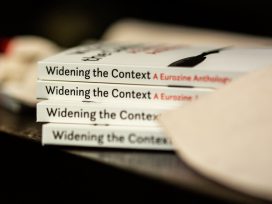
What started thirty-five years ago as an informal meeting of European editors became the basis for Eurozine, founded in 1998 as an online cultural journal and editorial network. To celebrate this double anniversary, Eurozine has published a print anthology spanning the project chronologically, thematically, generically and geographically.

Cultural journals have played a crucial role in the formation of the public spheres in Europe and beyond. Yet their future form and sustainability is by no means clear. Looking at journals’ history helps understand where they are headed. Introducing a new Eurozine focal point in collaboration with the Working Group on Periodicals Research.
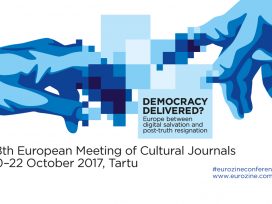
Democracy delivered?
Europe between digital salvation and post-truth resignation
Themes discussed at the 28th European Meeting of Cultural Journals, held in Tartu, Estonia, 20-22 October 2017.
25th European meeting of cultural journals held in Norway
Conference report
Against the background of civil protest in Ukraine, the production of the public sphere was the subject of three days of debate at this year’s Eurozine conference, held in Oslo from 29 November to 2 December, and co-organized and hosted by the Norwegian Association of Journals and Eurozine partner journal Syn og Segn.



